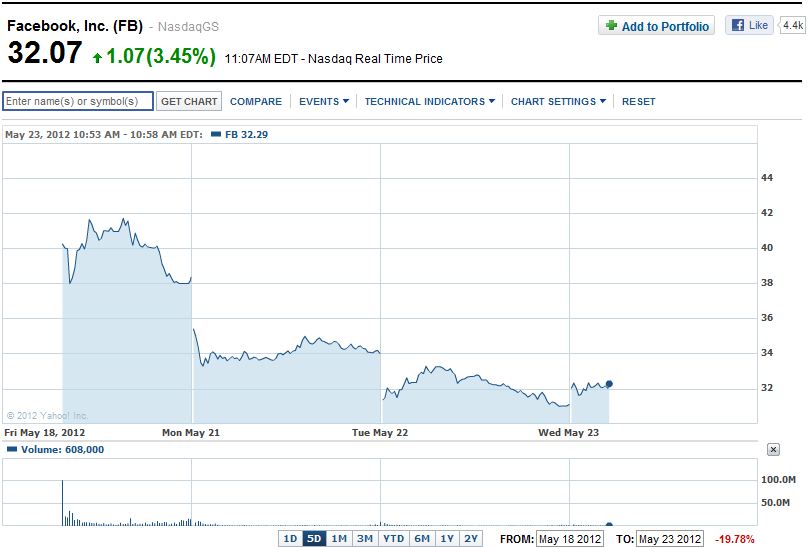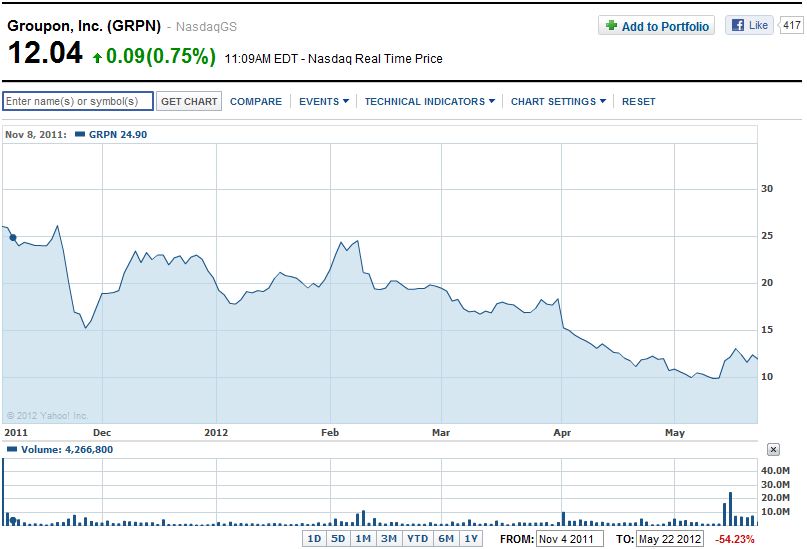Just about:
Then again, it's a hard accusation to prove: after all, one person's economic sabotage is another person's principled anti-government conservatism.
Beyond McConnell's words, though, there is circumstantial evidence to make the case. Republicans have opposed a lion's share of stimulus measures that once they supported, such as a payroll tax break, which they grudgingly embraced earlier this year. Even unemployment insurance, a relatively uncontroversial tool for helping those in an economic downturn, has been consistently held up by Republicans or used as a bargaining chip for more tax cuts. Ten years ago, prominent conservatives were loudly making the case for fiscal stimulus to get the economy going; today, they treat such ideas like they're the plague.
Traditionally, during economic recessions, Republicans have been supportive of loose monetary policy. Not this time. Rather, Republicans have upbraided Ben Bernanke, head of the Federal Reserve, for even considering policies that focus on growing the economy and creating jobs.
This collection of more-harm-than-good policies must also include last summer's debt limit debacle, which House speaker John Boehner has threatened to renew this year. This was yet another GOP initiative that undermined the economic recovery.
In other words, they're quacking. And as Sullivan says, "At some point, Obama has to stop sounding defensive on the faltering recovery and start pointing to who is actually responsible."
Why does it take a British newspaper and a British-American pundit to point this out?
Krugman says bailing out Spanish banks doesn't change the fundamentals:
[T]he whole story is starting to feel like a comedy routine: yet again the economy slides, unemployment soars, banks get into trouble, governments rush to the rescue — but somehow it’s only the banks that get rescued, not the unemployed.
Just to be clear, Spanish banks did indeed need a bailout. Spain was clearly on the edge of a “doom loop” — a well-understood process in which concern about banks’ solvency forces the banks to sell assets, which drives down the prices of those assets, which makes people even more worried about solvency.
Meanwhile, senior officials are asserting that austerity and internal devaluation really would work if only people truly believed in their necessity.
Put all of this together and you get a picture of a European policy elite always ready to spring into action to defend the banks, but otherwise completely unwilling to admit that its policies are failing the people the economy is supposed to serve.
It's depressing, watching Europe make the same mistakes they made in the early 1930s. It's happening in the US as well, thanks to a craven, almost-criminal effort by the GOP to kill anything that would help our economy before the election. I sincerely hope President Obama becomes FDR after his re-election. The other two possibilities—he stays the same, cautious guy, or Romney gets elected—will mean years more depression in the US.
The Atlantic's Max Fisher has a roundup:
Flipping through a few of the many English-language tourist guides provides a fascinating, if non-scientific and narrow, window into how people from the outside world perceive America, Americans, and the surprises and pitfalls of spending time here.
Of the many pieces of advice proffered, four of the most common are: eat with your fingers (sometimes), arrive on time (always), don't drink and drive (they take it seriously here!), and be careful about talking politics (unless you've got some time to spare). But they say more than that.
In many ways, the tour books say as much about the world as they do about the U.S., by highlighting the ways in which American practices and standards deviate. Anyone who's traveled widely, particularly in the developing world, will understand why these books are so emphatic about, for example, punctuality, personal space, and the unreliability of our trains.
All of them, of course, have sections on tipping. It's difficult to overstate how confusing that can be to foreign visitors.
I've got a deadline, which didn't stop me reading these articles (but did stop me posting thoughts about them):
Back to the mines...
Assuming the polls are correct, the contest in Wisconsin today will be close. Whatever the result, Scott Walker can hardly claim a mandate with somewhere around half the state wanting to take the unprecedented (for Wisconsin) step of yanking him from office. This is not trivial: voters have to overcome their natural disinclination to end a governor's term early, and then they have to select someone who lost an election just two years ago.
I look forward to the results.
Via reader AS, a frustrating story of suburban kids not allowed to bike to school:
[Saratoga, N.Y.,] Maple Avenue {Middle School]'s student body of 1,650 is delivered via 39 school buses—and as at thousands of other communities around the country, many parents elect to drive their children. Thus, every weekday morning, scores of idling cars line up behind dozens of buses disgorging waves of kids. Amidst this, Janette and Adam—each of whom was about 5 feet tall—seemed like a pair of diminutive daredevils wading into a tsunami.
As Adam locked his bike to a fence, a radio call came in to the administrative office. "Security told me that two bikes were getting involved with the buses," remembers the school principal, Stuart Byrne. "We hadn't heard from anyone beforehand. My assistant responded and said, 'Where are they?'"
An assistant principal, Robert Loggins, found Janette in front of the school, waiting for a lull in the traffic so she could depart. Adam had already gone inside.
"What are you doing here?" Loggins asked Janette.
Janette thought this an odd question. "It's Bike to Work Day," she said. "Did you ride your bike to school?"
"Bicycling isn't allowed at Maple Avenue School," said Loggins.
I imagine that when they grow up, the portly children of Maple Avenue School will drive to the gym twice a week.
Fortunately, the story has a (relatively) happy ending. But it highlights a number of symptoms that have created a generation of mentally-helpless children: helicopter parents, fear of lawsuits, car worship, middle-school assistant principals—evils which never seem to go away, despite clear evidence of the harm they cause.
At dinner last night with some of my B-school friends, conversation turned to the two most perplexing stock offerings of the last year: Facebook's and Groupon's. In both cases, the companies' very young owners and very rich venture capital investors got rich, but what happened after that? Here's Facebook's performance this week:

And Groupon's:

This morning, Groupon announced a proposed settlement in the class-action suit accusing them of practicing their well-known business model:
If you purchased or received a Groupon Voucher issued for redemption in the United States between November 1, 2008 and December 1, 2011, then you are a member of the class (“Class Member”) for purposes of this class action settlement, and may be entitled to receive settlement benefits, unless you are one of the following: (1) an employee of Groupon, Inc.; (2) a business with whom Groupon has partnered to offer Groupon vouchers (“Merchant Partners”); or (3) a parent company, subsidiary, affiliate or director or officer of Groupon or a Merchant Partner.
Facebook has its own problems. It's been a public company for less than three days, and already the SEC is investigating. Where they go, lawsuits surely will follow:
[R]egulators are concerned that banks may have shared information only with certain clients, rather than broadly with investors. On Tuesday, William Galvin, the secretary of state in Massachusetts, subpoenaed Morgan Stanley over discussions with investors about Facebook’s offering. The Financial Industry Regulatory Authority, Wall Street’s self-regulator, is also looking into the matter. The chairwoman of the Securities and Exchange Commission, Mary L. Schapiro, said Tuesday that the agency would examine issues related to Facebook’s I.P.O., but she did not elaborate.
Morgan Stanely, the banker in question, led both the Groupon and Facebook IPOs.
At least they didn't lose $2 billion last week gambling with money insured by us taxpayers.
I've never seen this before. Here's the French presidential airplane, parked on the south apron at O'Hare yesterday:

Parked nearby were Azerbaijan's, Italy's, and (I think) Russia's, but I couldn't get good photos with my tiny backup camera.
Let me be an aviation nerd for a second. This is an Airbus 320, without any obvious modifications. So how did it get an all the way here from Paris? I assume it stopped at Andrews AFB in Maryland to drop President Hollande off. But even Paris to Andrews seems like a long flight for that plane. The A320 has a maximum range of 6,150 km. Paris to Andrews is 6,183 km—possible, but risky, as it wouldn't leave any margin for error even after flying as efficiently as possible. Not to mention, flying trans-Atlantic westbound goes against the prevailing winds. So did they stop for fuel somewhere? Or does the plane carry more fuel than the bog-standard air transport model?
I realize this is not the most important aspect of the NATO summit, but I am curious.
This week's Charlemagne column:
THE Merkozy era is over. So how to label the partnership of Angela Merkel and François Hollande? Merging first names to make Frangela is too familiar for leaders who barely know each other. Homer is too American (or worse, Greek). Merkollande sounds too close to Merkozy. That leaves just the shortened Merde, which at least sums up the state of the euro.
I read this on the plane yesterday, sitting next to someone eagerly studying his Bible (with highlights!). I laughed so hard I scared him.
Of course, once I finished with the Economist I returned to Krugman's End This Depression Now!, which just mad me sad. I'm hoping against reason that between yesterday's G8 summit and today's NATO conference, the Western democracies finally—finally!—throw out the austerity programs that have made things worse for millions of people, and instead start getting people back to work.
Home to O'Hare: 39 minutes
Taxi to the other side of security: 6 minutes
TSA checkpoint to free drink at the club: 9 minutes
The weather is nearly perfect (for flying, anyway; I think it's too hot already), so I don't anticipate any delays flying out. And Air Force One doesn't get here until tonight, six hours after I leave. So, depending on Route 92, this might be one of my easiest trips ever. (It's got to be easier than the last time I flew.)
So, after hearing non-stop for a week about the massive disruptions due to the NATO summit, it turns out I have an hour to kill.
That's why I have This American Life on my iPod.
That said, I am kind of disappointed I won't get to see any of the world leaders. The Tribune reports that Pakistan's Zadari, Afghanistan's Karzai, and France's Hollande will all be here later today. And, as I've already mentioned, the big guy himself arrives at 8:45pm.
Update: Yikes! He's following me!
On Wednesday, the President ... will travel to California for campaign events in Atherton and Redwood City. The President will spend the night in San Jose, California.
On Thursday, the President will attend a campaign event in Palo Alto, California. ....